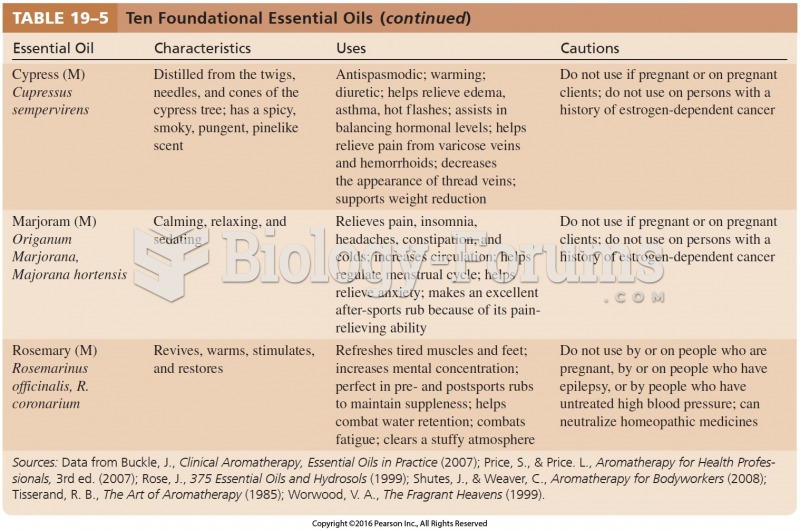|
|
|
A headache when you wake up in the morning is indicative of sinusitis. Other symptoms of sinusitis can include fever, weakness, tiredness, a cough that may be more severe at night, and a runny nose or nasal congestion.
The use of salicylates dates back 2,500 years to Hippocrates’s recommendation of willow bark (from which a salicylate is derived) as an aid to the pains of childbirth. However, overdosage of salicylates can harm body fluids, electrolytes, the CNS, the GI tract, the ears, the lungs, the blood, the liver, and the kidneys and cause coma or death.
Earwax has antimicrobial properties that reduce the viability of bacteria and fungus in the human ear.
Vaccines prevent between 2.5 and 4 million deaths every year.
Bacteria have flourished on the earth for over three billion years. They were the first life forms on the planet.







